
Naked Science is an American documentary television series that premiered in 2004 on the National Geographic Channel. The program features various subjects related to science and technology. Some of the views expressed might be considered fringe or pseudo-science, and some of the scientists may present opinions which have not been properly peer-reviewed or are not widely accepted within their scientific communities, in particular on topics such as Bermuda Triangle or Atlantis for example.
Showing Season 5 of 9
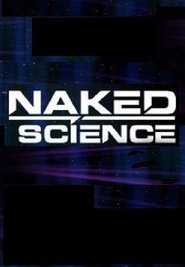
Season 5
2008
No overview available.
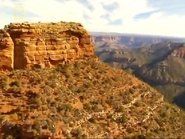
01. Grand Canyon
2008-02-11
No overview available.
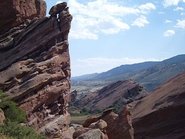
02. The Rockies
2008-02-11
Mysteries surrounding the Rocky Mountains are discussed. Included: recent theories on their formation and how the rate of growth of the American Rockies compares to that of their Canadian counterpart.
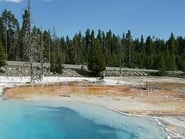
03. Birth of America
Air date TBA
No overview available.
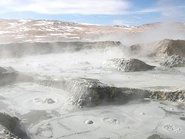
04. Birth of Life
Air date TBA
How did life begin? its one of the most fundamental and difficult questions that has challenged us for ages. Our planet is teaming with life, from the highest mountain to the deepest ocean; life is everywhere. But what was the firing pistol that started the evolutionary race? How did material go from non-living to alive?
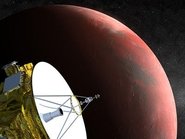
05. Pluto Rediscovered
Air date TBA
Three million miles from earth lies a planet so small that even the most advanced telescopes. A dedicated core of scientists offer educated guesses as to the makeup and condition of Pluto, as well as discuss its qualifications to be counted as a planet. Meahwhile, the New Horizons space probe continues its nine year trek to the planet to finally reveal the secrets of the "planet".
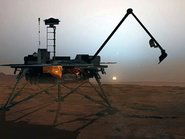
06. Mars: Waterworld
Air date TBA
No overview available.
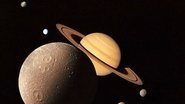
07. Saturn's Secrets
Air date TBA
No overview available.
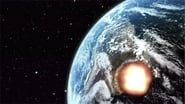
08. Asteroid Alert
Air date TBA
No overview available.

09. First to Cross the Ocean
Air date TBA
No overview available.
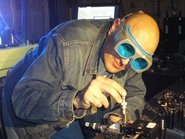
10. Time Machine
Air date TBA
No overview available.
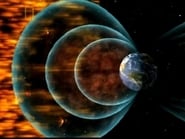
11. Earth's Invisible Shield
Air date TBA
No overview available.
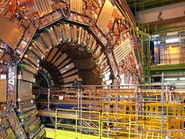
12. Big Bang
Air date TBA
13.7 Billion years ago, there was absolutely nothing. No space, no time, and no matter. Then there was the Big Bang. Naked Science follows the first second of creation, when a minute speck of light appeared from nothing, expanded at unimaginable speed, and created everything we see in the Universe today.
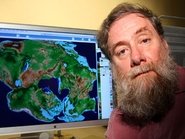
13. Supercontinent
Air date TBA
No overview available.
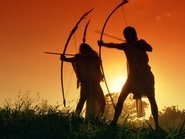
14. Who killed the Aztecs?
Air date TBA
No overview available.
15. Ice Age Meltdown
2009-04-09
No overview available.
16. What's Sexy
2009-04-16
No overview available.
17. How to Kill a Planet
2009-04-23
No overview available.
18. Hubble's Amazing Universe
2009-05-14
No overview available.
19. Anatomy of a Hurricane
2009-06-04
No overview available.
20. Twister Outbreak
2009-06-11
No overview available.
21. Earth's Evil Twin
2009-06-25
Millions of years ago, Venus and Earth cut similar figures. Roughly the same size and about the same distance from the sun, their respective evolutions could have followed similar paths. But today, Venus is a seething vision of Hell, its battery-acid atmosphere and incessant, hurricane-force winds masking a blistering volcanic surface. Some scientists wonder if it is a harbinger of whats in store for Earth. Thanks to the European Space Agency, Venus Express the most sophisticated satellite ever to visit the planet is orbiting Earths estranged twin, gathering the data we need to figure out why Venus went bad. Could our home planet be hurtling towards a similar fate? And could the hostile Venusian environment, now seemingly devoid of biologys most fundamental ingredient water yet harbour life?
22. Secret Life of Fireworks
2009-07-02
Secret World of Fireworks explores the closely held secrets, recipes, and techniques from the world of pyrotechnic showmen. National Geographic takes a behind the scenes look into this exclusive world with unique access from Zambelli Internationale of New Castle, Pennsylvania - Americas First Family of Fireworks - along with rocket scientists and chemists from Los Alamos, New Mexico.
23. Tsunami From Outer Space
2009-07-09
No overview available.
24. How the West Was Made
2009-07-16
No overview available.
25. Living on the Moon
2009-07-23
No overview available.
26. Birth of The Oceans
2009-08-20
No overview available.
27. Stephen Hawking's Universe
2009-08-23
Stephen Hawking is one of the worlds most famous scientists. But ALS, also known as Lou Gehrigs Disease, has left him almost totally paralysedand it is progressing. Unable to walk, talk, or write, his only way of communicating is through a computer program that turns a small movement of a finger or the blink of an eye, into words from a vocal synthesizer. But Hawking remains determined to discover a theory of everything, a complete set of rules for the Universe. Where did the Universe come from and where is it going? What is the nature of time? Will it ever come to an end? This programme will explore Hawkings major contributions to the understanding of our Universe - from his revolutionary proof that our Universe originated in a Big Bang; to his ground breaking discovery that Black Holes are not completely black, but rather emit radiation and eventually evaporate and disappear, to his insights on string theory. Will he unlock the secret of creation before his time runs out?
28. Death of the Universe
Air date TBA
In the farthest reaches of space, a volatile battle is taking place between two forces so great, they may eventually destroy the very universe itself. Known as Dark Matter and Dark Energy, these opposing forces have the capacity to rip apart the universe atom-by-atom. While scientists have previously theorised about a “Big Crunch” where the universe retracts back to its original size, the discovery of Dark Matter and Dark Energy has placed that hypothesis on the backburner. Some astronomers now believe that if Dark Matter offsets Dark Energy then as the universe slowly expands, stars will gradually fade, running out of fuel and leading to a dark, cold and lifeless universe. While the universe’s end may be 50 billion years away, great leaps in science will continue to alter how we believe the universe was formed – and how it will end.
